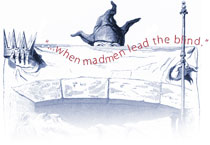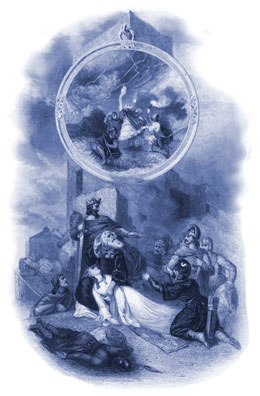
 King Lear: A Verse Translation, 2e
King Lear: A Verse Translation, 2eWilliam Shakespeare
Kent Richmond (translator)
ISBN-13 9780983637943
Full Measure Press

King Lear: A Verse Translation, 2e
William Shakespeare
Kent Richmond (translator)
ISBN: 978-0-9836379-4-3
Full Measure Press

Two families torn
by jealousy,
ingratitude, and rage
drive a kingdom
to civil war
and madness.
This revised 2nd edition of King Lear: A Verse Translation makes the language of Shakespeare's play more modern while preserving the rhythm, complexity, and poetic qualities of the original. The aim is to capture the sound and sense of Shakespeare's tragedy without the need for glosses or notes--to use contemporary language without simplifying or modernizing the play in any other way.
Shakespeare’s play is about 75% verse and song and 25% prose. To make the play seem as much like Shakespeare’s original as possible, Kent Richmond maintains that exact ratio. His blank verse is accurate and representative of what Shakespeare used. He also uses a range of vocabulary and sentence complexity that matches the original closely. Shakespeare no doubt wanted his play to be difficult and challenging and Richmond’s translation respects that desire. [read an excerpt]
Number of Unique Words
Shakespeare's original: 4,093
Richmond's translation: 4,283
Is King Lear Shakespeare’s greatest play? Those who love Hamlet will certainly have something to say on the matter, but it is hard not to be awed by Lear’s intense poetic expression as Shakespeare weaves together two stories of shocking brutality.
Experience the violent downfall of Shakespeare's most dysfunctional family with the comprehension and delight of audiences 400 years ago—the way Shakespeare intended.
Excerpt from King Lear: A Verse Translation
from Act 1, Scene 2
Scene Two. A Hall in Gloucester’s Castle
[Enter EDMUND with a letter]
EDMUND
Read another excerpt
You, nature, are my goddess. To your law
My services are bound. For why should I
Endure the plague of custom, and thus let
The legal niceties of states deprive me,
Because I trail a brother by some twelve
Or fourteen moons. Why bastard? Why debased?
When my physique is just as well composed,
My mind as noble, and my shape the same
As lawful wives bring forth? Why brand us then
As base? With baseness? Bastardly? Debased?
Don’t we from stealthy acts of natural lust
Receive more character and fiery vigor
Than comes from all the dull, stale, tired beds
That go to make whole tribes of fools conceived
Between the time we sleep and wake? Well then,
Legitimate Edgar, I must have your land.
Our father loves the bastard son as much
As the legitimate. Fine word—legitimate!
Well, my legitimate, if this letter works,
And if my scheme goes well, Edmund the base
Tops the legitimate. I grow. I prosper.
Now, gods, stand up for bastards!
© 2004 by Kent Richmond
Read an excerpt from


King Lear and Cordelia
Praise
"Too often, unless we read a Shakespeare play beforehand, we process the language as if it were coming from a poorly tuned-in radio station. Shakespeare didn’t write his plays to be experienced impressionistically as ‘poetry;’ he assumed his language was readily comprehensible. At what point does a stage of a language become so different from the modern one as to make translation necessary? Mr. Richmond is brave enough to assert that, for Shakespeare, that time has come. The French have Moliere, the Russians have Chekhov—and now, we can truly say that we have our Shakespeare.”
—John McWhorter, Manhattan Institute

